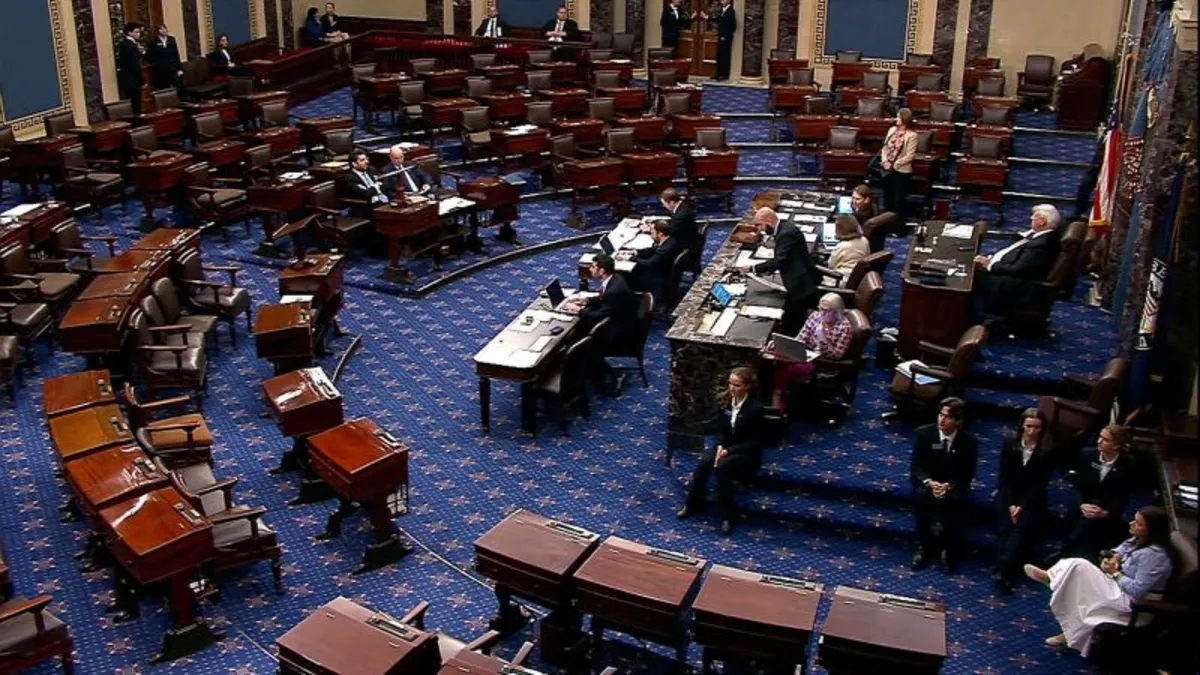
President Donald Trump is making significant strides towards implementing his Department of Government Efficiency’s proposed spending cuts. In the early hours of Thursday morning, Senate Republicans reached a consensus to cancel $9 billion in funding, impacting both foreign aid and public broadcasting. This legislative package is now set to return to the House for final approval, where it must meet a critical Friday deadline imposed under the budget rules that allow Republicans to advance the package without requiring Democratic votes.
If the House passes the bill, it will be sent to Trump’s desk for his signature, marking a significant partisan effort to reclaim federal funds that Congress had previously allocated. While the majority of Senate Republicans are backing these spending cuts and are even pushing for further reductions, some party members have expressed concerns. They argue that this initiative sets a dangerous precedent that undermines the authority of Congress.
In the final vote, two Republican senators opposed the measure: Sen. Susan Collins, who chairs the Senate Appropriations Committee, and Sen. Lisa Murkowski. The final tally stood at 51-48, demonstrating a narrow margin of support.
The proposed cuts include approximately $8 billion from congressionally approved foreign aid programs, part of a broader strategy by the White House to dismantle the US Agency for International Development (USAID). Additionally, $1.1 billion will be withdrawn from the Corporation for Public Broadcasting, which provides funding for networks such as NPR and PBS.
The Senate's passage of the bill followed a lengthy voting session on various amendments, which extended from Wednesday afternoon into Thursday morning, lasting over 12.5 hours. Despite numerous attempts by Democrats to amend the legislation, none of their proposals were accepted.
Trump and his administration have dedicated weeks to persuading Republicans to support their spending cut plan. In a significant concession prior to the final Senate vote, they agreed to protect funding for PEPFAR, a Bush-era initiative aimed at combating global AIDS, in response to demands from several GOP senators.
The pressure is now on House Republicans to adopt the amended spending cuts by the Friday deadline. Although the House initially approved the package in June, they must revisit it due to the changes made by the Senate. Just before the Senate's final vote, the chamber passed a substitute amendment, allowing Republicans to adjust the House version of the bill.
If the House approves the new version of the legislation, it will represent the second time this month that they have accepted Senate changes under a tight deadline. Earlier, the House had narrowly passed the Senate's version of Trump's expansive domestic policy agenda bill before the Fourth of July.
Speaker Mike Johnson expressed his hopes that the Senate would return the package to the House "as is," given the slim Republican majority. However, he remarked, “We’re going to process whatever they send us, whenever they send us.”
As Republicans rallied support for the bill, Sen. Mike Rounds declared his backing after securing an agreement to maintain funding for rural radio stations in South Dakota, which he had been advocating for weeks. Rounds emphasized the importance of tribal broadcast services in delivering crucial emergency alerts.
During the procedural votes leading up to the bill's advancement, GOP leaders made a pivotal change by removing a controversial $400 million cut that would have adversely affected the PEPFAR program. This program is widely regarded as an essential tool in the United States' fight against the global AIDS epidemic.
Despite the modifications, Collins and Murkowski remained opposed to the bill. They argued that the administration had not provided sufficient specifics regarding how the cuts would be implemented and raised alarms about the potential negative impacts. Collins commented, “The rescissions package has a big problem – nobody really knows what program reductions are in it,” expressing frustration over the lack of clarity from the White House Office of Management and Budget.
Murkowski echoed these sentiments, stressing the importance of safeguarding public broadcasting and warning that accepting the White House's proposal undermines Congress's constitutional control over federal funding. In a floor speech, she insisted, “We’re lawmakers. We should be legislating,” highlighting her concern over the administration's directive approach.
As this legislative process unfolds, the outcome will be a critical test of Republican unity and the Trump administration's influence over federal spending priorities.